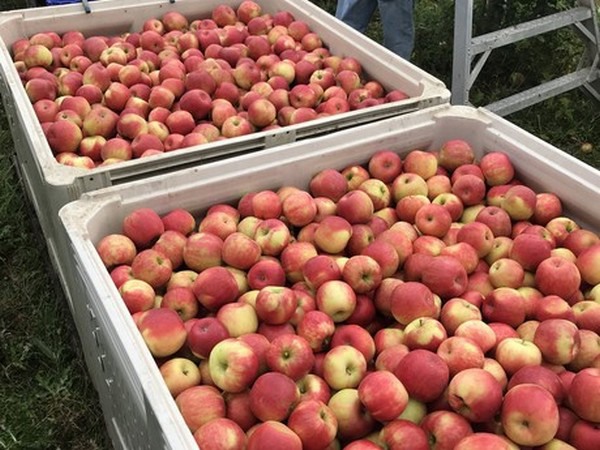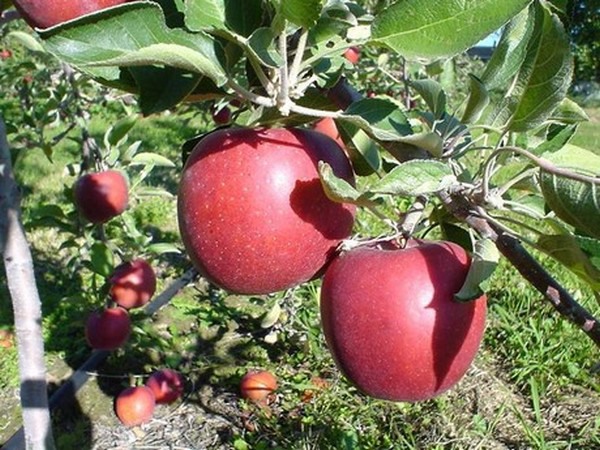U.S. fresh-market apple holdings are down 11.1 percent compared to this time last year.
According to the U.S. Apple Association (USApple), which just released the February 2021 edition of its Market News, fresh-market apple holdings were at 78.1 million bushels on February 1, 2021. That’s 11.1 percent less than February 1, 2020 when holdings were at 87.9 million bushels. It’s also 6.1 percent less than the five-year average of 83.2 million bushels.
Growers look towards climate to explain the drop. As Brett Baker of United Apple Sales of Lyndonville, NY notes, key growing regions such as Washington produced a smaller crop and Pennsylvania and Michigan also didn’t have large crops. “And I’d say New York has an average crop,” says Baker.
In California, Paul Smit of the California Fruit Co./ Smit Farms, an organic fruit grower in Linden notes that the West Coast wildfires in 2020 played a significant role in crops being down. “We also had an extreme dry spell that set the crop off,” he says. “I think crops being down this year is all weather.”
 Photo: United Apple Sales
Photo: United Apple Sales
The role of labor
He does say that labor issues also factor into these numbers. “Labor continues to be at the forefront of the issues,” he says. “Apples are probably the most labor-intense crop you can grow. There’s still no significant technology to get away from the labor. That’s becoming more of a problem because with some of the yields, they couldn’t pick them.”
Baker says the same thing. “I know some packing houses started later because they felt they didn’t have enough labor to pack and pick,” he adds.
At the same time, total processing apple holdings as of Feb. 1, 2021 were 34.5 million bushels. That’s only one percent less than those on Feb. 1, 2020 and five percent greater than the five-year average for that date. “We were very dry in western New York and many of the processing orchards I drove by, they struggled for size,” says Baker. Other factors also might affect processing holdings could be the USDA Farmers to Families Food Box program which took some apples and in turn, kept them out of processing.

Total storage numbers down
As for storage apples, the total number of apples in storage on February 1, 2021, was 112.7 million bushels—that’s 8.2 percent less than last February's total of 122.8 million bushels and 2.8 percent below the five-year average for that date.
So, what does this all mean? “My first instinct is it’s going to be a summer where there are going to be a lot of import apples around. We should see strong prices over the summer and it’s always wonderful when we can start a new apple season without full storages left over from the year,” says Baker. “And the start of next year then should see very strong movement and pricing.”
At the same time, Smit wonders how COVID-19-related consumer habits factor into the future movement of apples. “If restaurants open up, you’ll see a lighter demand for apples,” he says adding that apples also benefited from the growth in direct-to-home delivery boxes such as Amazon Fresh. “When people are at home, they eat healthier with more fruits and vegetables,” he says. However, when consumers return to in-store shopping, produce aisles compete more directly with snack aisles, etc. “When you order online you may not order snacks. But when you order produce boxes, you purposely want to finish your produce every week,” says Smit.
For more information:
Brett Baker
United Apple Sales
Tel: +1 (585) 765-2460
[email protected]
www.unitedapplesales.com
Paul Smit
California Fruit Company/Smit Farms
Tel: +1 (877) 378-4811
[email protected]
www.californiafruit.com
